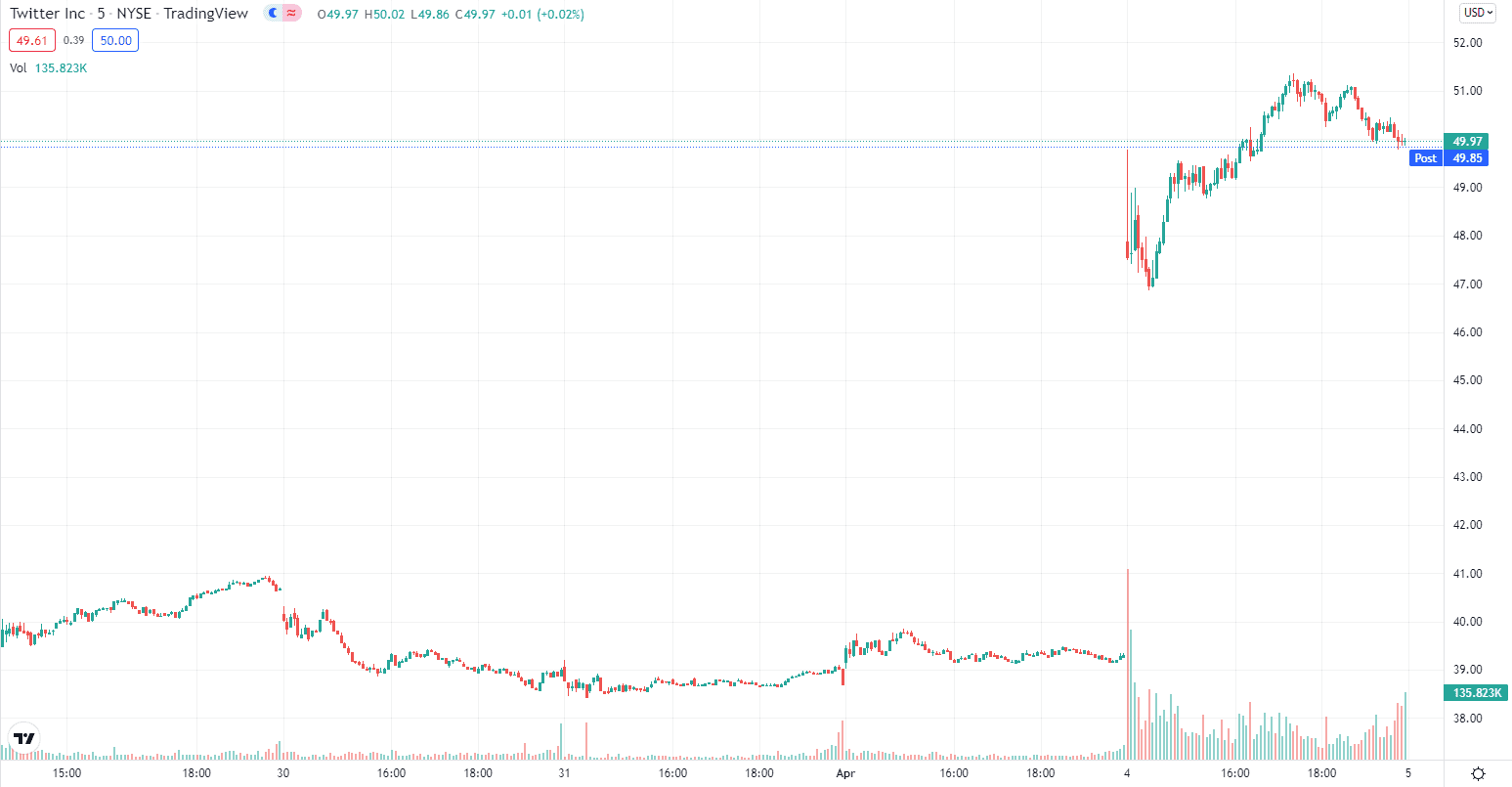Elon Musk could soon add a social media empire to his conquests. According to a U.S. SEC filing, the billionaire entrepreneur has amassed a 9.2% stake in social media platform Twitter, making him the single-largest shareholder of the tech company. Twitter Founder Jack Dorsey, who resigned as CEO last year, holds a 2.25% stake.
As part of the deal, Musk’s ownership of the site is capped at 14.9%, putting to rest speculation of a potential hostile takeover of the company.
Twitter CEO Parag Agrawal tweeted that Musk has been appointed to the company’s board of directors.
Dorsey says he’s “really happy Elon is joining the Twitter board.”
I’m really happy Elon is joining the Twitter board! He cares deeply about our world and Twitter’s role in it.
Parag and Elon both lead with their hearts, and they will be an incredible team. https://t.co/T4rWEJFAes
— jack (@jack) April 5, 2022
Musk, whose net worth is over $302 billion, poured roughly $2.89 billion into Twitter’s stock and has already earned himself a decent payday. Investors piled into the stock on the heels of Musk’s investment, sending it soaring over 27% on Monday to almost $50 per share. Twitter’s stock has not risen that much on a trading day since its 2013 stock market debut.

Elon Musk signed the SEC filing, which disclosed his investments in Twitter through March 14, on April 4. SEC rules require investors to disclose a stake of more than 5% in a company within ten calendar days. Musk, who has had run-ins with the securities regulator about his tweets before, waited roughly twice as long.
Tweet Heard ‘Round the World
Musk’s passive stake in the company comes about a week after tipping his hand to possible plans to disrupt the social media arena. Much of Twitter seems to be buzzing about it, including many of Musk’s 80.2 million followers.
Social media platforms, including Twitter, have come under fire in recent years amid allegations of censorship.
Elon Musk nodded to his social media aspirations via a tweetstorm centered on freedom of speech in late March. After labeling Twitter the “de facto public town square,” he said, “failing to adhere to free speech principles fundamentally undermines democracy.”
The Tesla chief polled his Twitter followers on whether they believe Twitter “rigorously adheres” to the principle of free speech, which he says “is essential to a functioning democracy.” Out of thousands of votes, more than 70% of respondents said no, while just under 30% said yes.
Free speech is essential to a functioning democracy.
Do you believe Twitter rigorously adheres to this principle?
— Elon Musk (@elonmusk) March 25, 2022
Musk asked if a new platform was needed, which set off a firestorm of speculation about what might come next.
After his status as Twitter’s biggest shareholder became public, Musk initially played it coy, tweeting, “Oh hi lol” to the world.
He did not stop there, however, running another poll about whether Twitter users want an edit button with aptly misspelled selections “yse” and “on.” Nearly three-quarters of poll participants responded in the affirmative.
Do you want an edit button?
— Elon Musk (@elonmusk) April 5, 2022
While shareholders may be optimistic about the prospects for the company with Elon Musk involved, some of the staff are less so.
Twitter employee J. Mulholland, who is in charge of “developing terms and conditions for users,” announced that he is resigning in the wake of Musk’s interest in the company. Mulholland maintains that the platform is dedicated to “protecting users from bullies, bigots, and spam.” He refuses to work with or for Musk.


